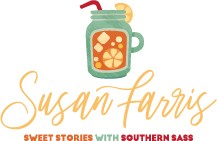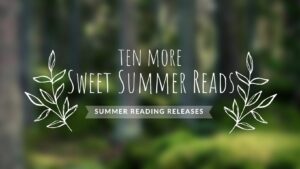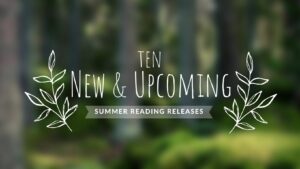As avid readers, all of us have aspirational books.
Maybe you want to finally dust off that copy of George Eliot’s Middlemarch or tackle Brandon Sanderson’s Stormlight Archives. Whatever it is that you have your sites set on, it can seem out of reach if your life is busy or you feel like you’re a slow reader.
However, hitting your literary goals doesn’t have to remain an impossible goal.
Getting Started
Make a plan.
Do you have an area of interest you want to explore? Found a reading list you want to take on as a personal challenge? Really, really want to finish that exciting fantasy series you started last Christmas and haven’t had time to pick up again?
Whatever it is, scope out exactly what it is you want to tackle and make yourself a reading plan. This will keep you on track and focused when shiny, new books pop up that don’t quite fit with what you want to accomplish (or that you need to designate to your fun reading time that we’ll go over in the next step!)
Prepare yourself 1: Map it out.
Look through your copy of the book and get a lay of the land.
How many chapters are there? How are they organized- are they short, long, broken into sections? Is the book broken into parts or otherwise divided? Is the typesetting easy to read or will you need to allow yourself more time because it’s small and cramped?
Prepare yourself 2: Make sure the plan fits you.
Now, split the book into chunks that take into account your reading abilities and preferences, you up your chances of finishing.
Consider your reading speed, how much time you have to read each day/week, and whether or not you want to read anything else at the same time.
Set a small amount of time or number of pages per day that you’ll read. Your plan should feel doable alongside your personal life, work, and any other books you want to read.
Since you’ve already looked ahead, you’ll have checkpoints predetermined in case you drop behind from time to time.
Say you didn’t read your 12 pages for the day- knowing you want to reach a certain number of chapters by the end of the month can help you know when to set aside a couple of hours for a reading sprint to catch up. This can feel more doable than just a vague “falling behind” feeling.
Also, if you’re planning to tackle a big project like a reading list, lengthy series, or set of books on a certain topic, I really encourage you to divide your time into two parts: time devoted to your goal and free time for reading whatever catches your fancy. Maybe your morning pages are devoted to your reading project, while any free reading time in the evenings can go to that new release your book club is chatting up.
Like a well-balanced diet, this will keep you from feeling deprived as you stay focused on your goals.
And like any good plan, check-in with yourself from time to time and recalibrate if you need to. Maybe you want to start working out in the mornings. Great! Can you read on your lunch breaks? Or maybe read a few pages before going to bed? Don’t feel chained to your plan if life changes.
Prepare yourself: Addendum – Know yourself.
Before you pick up a big book saying “This! I’m going to read this!” ask yourself if “this” is really something you WANT to read.
A few years ago, I picked up a copy of Stephen & Owen King’s Sleeping Beauties. But I’m not a big fan of thrillers (I enjoy shorter ones, but I’ll never be the sort of person who reads It.) That book is still sitting uncracked on my shelf.
To see if a book is a good fit for you, read the synopsis and the first couple of pages. Do you like the subject? Do you like the MC? Do you like the style? Be sure, because they’ll probably be with you for the next couple of months.
The Practical
Make little pockets of time to read.
Don’t get out of bed until you’ve read some pages.
Take the book with you wherever you go and get there fifteen minutes early. Not only will you gain a rep for being punctual af, but you’ll see those pages start to fly by.
And you can really up your reading rate if you enhance any “handsfree” time of your commute or chores with the audiobook. Instead of taking a shower, take a bath and enjoy a chapter or two. If you insist on a shower, turn the volume up on that audiobook 😉
Shut off your phone.
I can’t remember the last time I sat for more than an hour without being interrupted by dings, bells, and whistles. When I really need to concentrate, I switch my phone to Do Not Disturb mode or Airplane mode for a quick way to clear the mental clutter.
Another great way to clean up the noise? Delete all your social media apps. You can always reinstall them when you’re ready.
Engage.
Reading is a surprisingly kinetic experience. Everything from the weight of the book, the feel and look of the cover/pages, and the appearance of the text shapes our feelings about our reading experience. So don’t be afraid to be a little picky about the copy you pick up (or your Kindle settings.)
If a book looks nice and is easy to hold, we’re much more likely to… hold it. Besides, no one wants that dreaded pinky cramp.
Ultimately, get what you like. If you’re a page ripper, then you probably skew towards pulp paperbacks. If you’re a collector, you’re probably going to want to sink some cash into those nice leather and clothbound editions.
That being said, with older books, I tend to go for annotated/footnoted copies that have introductory or supplementary materials. Yes, I’m a nerd. But it’s also really discouraging to get knee-deep in a book and get completely lost when the characters are making cultural references I have no idea about. (This is why I own not one but two copies of The Works of Shakespeare and five copies of Beowulf. Some books just need that extra bit of help.)
And if you’re a kinesthetic learner like me, it can also be helpful to underline, highlight, annotate, doodle, cross-reference, and otherwise just mark up your copy. After all, you’re putting in a lot of effort. Make sure you get the most out of your experience! No one is going to see your books but you.
If you find the idea of defacing your collector’s edition abhorrent but need to keep your hands busy, grab some sticky notes or a nice book journal.
The Creative
Buddy read.
It’s so much more fun to read (big) books together!
You can discuss characters and their foibles together, sympathize over tragedies, and celebrate unique plot twists. Knowing your friend is waiting on you to discuss a certain section can give you the motivation to keep going.
And if you hit a really tough section? You can reassure each other that it passes.
Bring the book to life!
Some books just call for a creative reading strategy.
Ulysses (1040 pgs) takes place over the course of a single day on June 16th. If you’re a quick reader, you can schedule an epic one-day marathon and time your reading to the events of the book. Dante’s Divine Comedy (1744 pgs) and Richardson’s Clarissa (1356 pgs) have temporal timelines you can play with as well.
If you love traveling, you can bring your loves of site seeing and reading together with stories like Chaucer’s Canterbury Tales (1328 pgs), Don Quixote (1056 pgs), or Boccacio’s The Decameron (1072 pgs).
Can’t sit still? Don’t.
This is an old therapy trick for patients who become restless as it gives the body a rhythm and allows the mind to focus.
Walking while reading works great on treadmills, quiet suburban sidewalks (please look up while crossing streets), and exercise tracks. You can also try stationary bikes and ellipticals. Just remember that the more effort or coordination that an activity demands, the more you will need to use your eyes for balance so you might want to swap to audiobooks.
The activity doesn’t have to be walking. When I was a teenager, I struggled with sitting still despite my love of reading. This was the era before fidget cubes, but I found a contraption called a Tangle that helped occupy my hands while I was reading. It was quiet and my teachers even allowed me to have it out in class.
You can try fidget cubes, worry stones, sensory strips, shuffling a deck of cards, or silly putty.
Rip ’em up!
Gasp. Yes, I just told you to destroy a book. But if you don’t have space in your purse/briefcase/pocket to bring the whole book, then don’t bring the whole book.
This is what pulp paperbacks were made for, people. Use and abuse. Rip out the chapters you might need and leave the rest at home. Enjoy a lighter bag and a shoulder that doesn’t ache. (Obviously, if you’re an e-reader devotee this does not apply to you. Enjoy your technological superiority. The rest of us mortals will enjoy sniffing our books.)
Bonus: This makes it super easy to recycle your books if you love doing that.
Just Get On With It
Skimming is your friend.
Ok, don’t come for me over this one.
But do we really need all the in-depth info on 18th-century whaling practices that we get in Moby Dick to understand the plot? No. We can easily cut 200+ pages if we skim (or skip) these sections.
With every long/difficult book, there’s bound to be a part that makes you want to use it as an actual doorstop instead of picking it up ever again. Just get through it, even if it means (oh my stars!) skipping a bit.
You’ll catch up quickly enough and you would have been so bored anyway your glazed-over eyes wouldn’t have really absorbed it. Save yourself and skip to the good part. It’ll be ok.
Slow down.
Whoa, Susan. What are you talking about? I thought we were trying to get through this. We are.
But honey, this is a marathon, not a sprint. So slow down, set a reasonable pace with water breaks and enjoy the experience. This wouldn’t be a post about reading if I didn’t tell you to enjoy yourself at least one time.
So don’t be afraid to celebrate big reading milestones by dipping out for a minute to read a novella, graphic novella, or a short story from one of your favorite collections (I keep these on hand just for this reason.)
On the other hand- use your momentum!
Finish one big book and you’ve really achieved something.
Hopefully, it will bolster your confidence to tackle the next one because you know you can and you’ll have developed some great reading habits. So jump into the next book right away.
Go forth and read happily!


